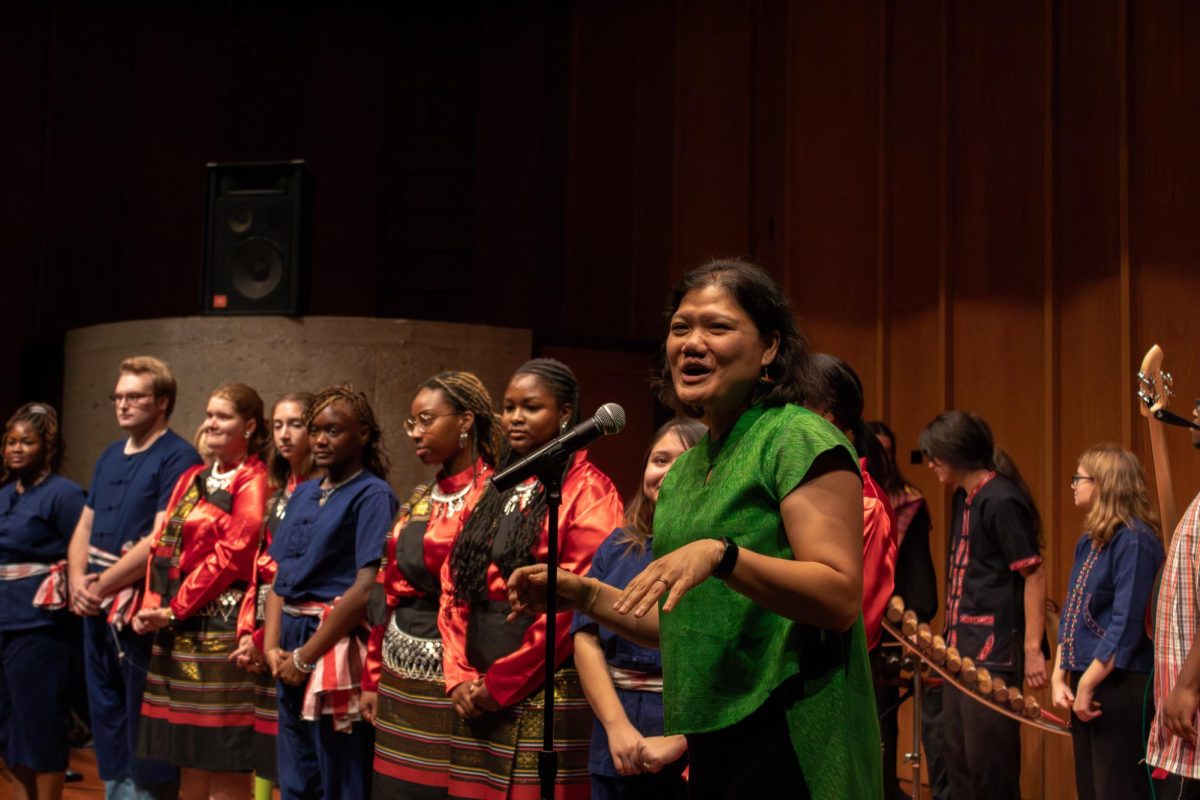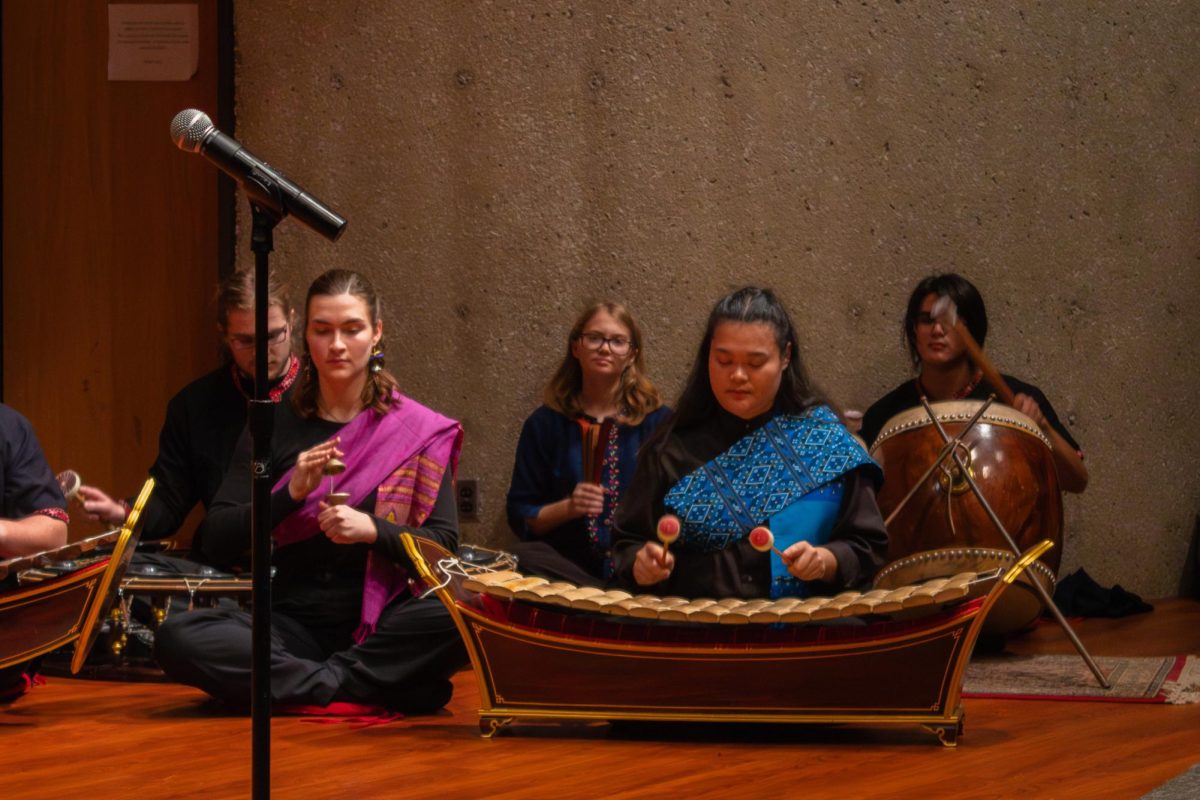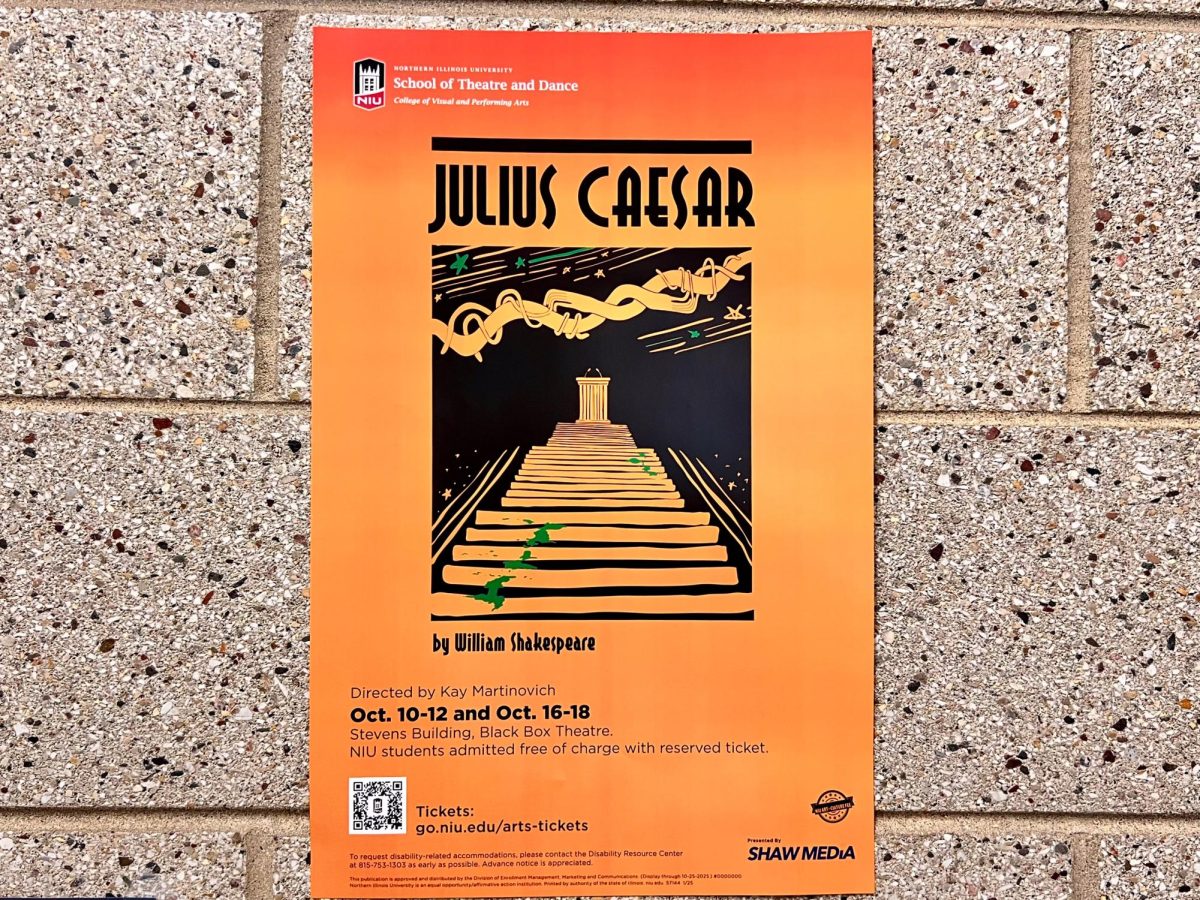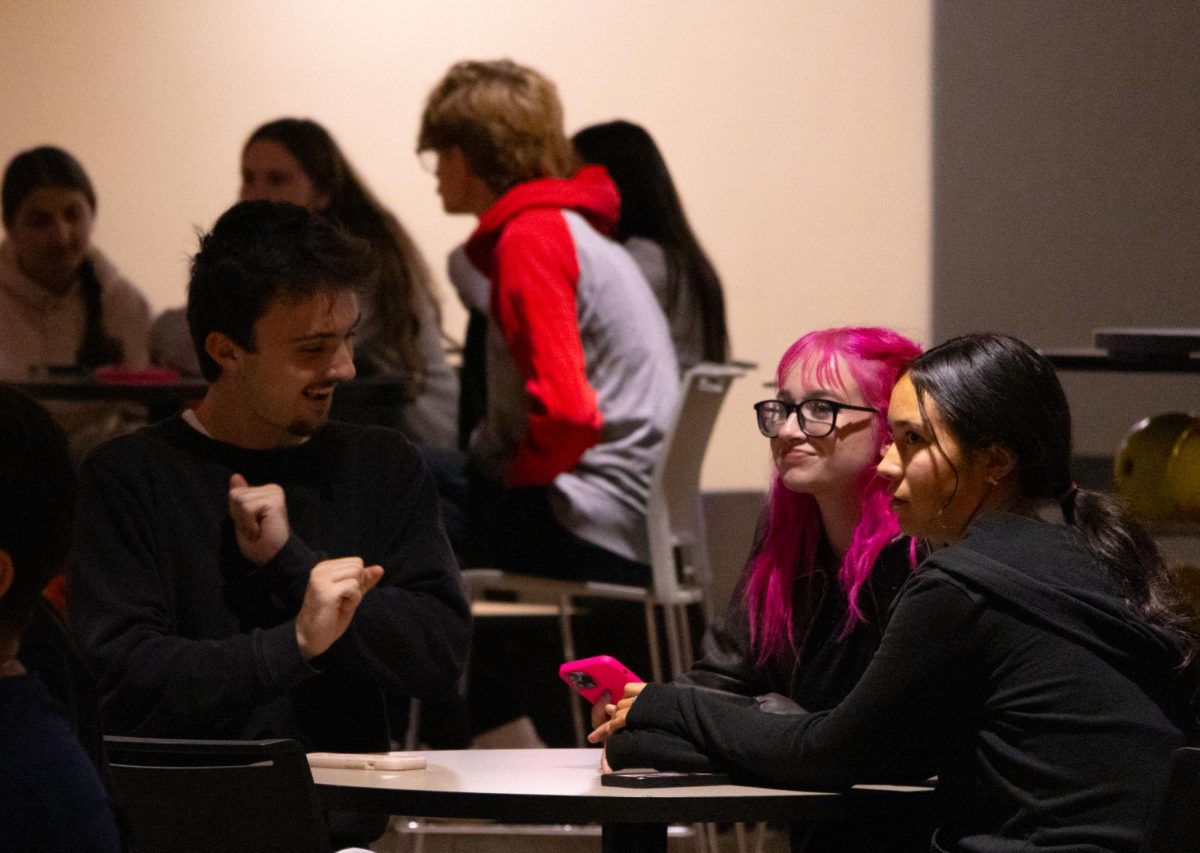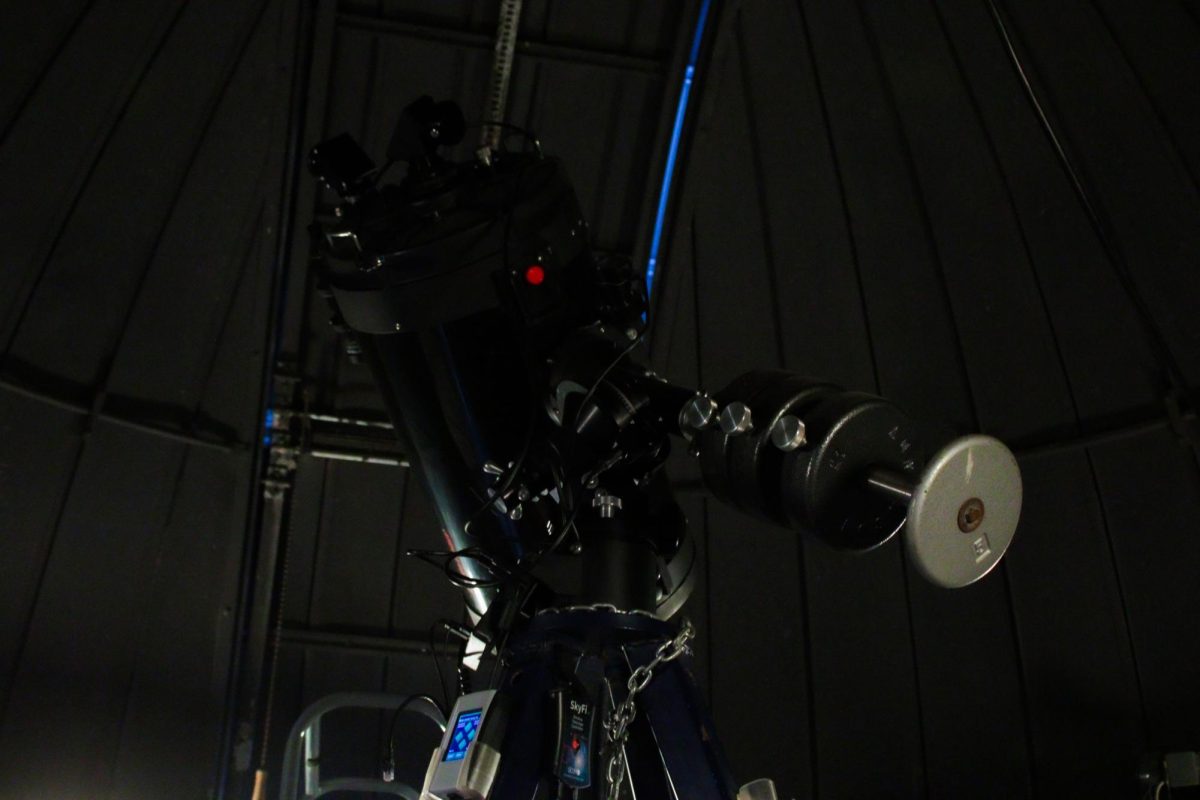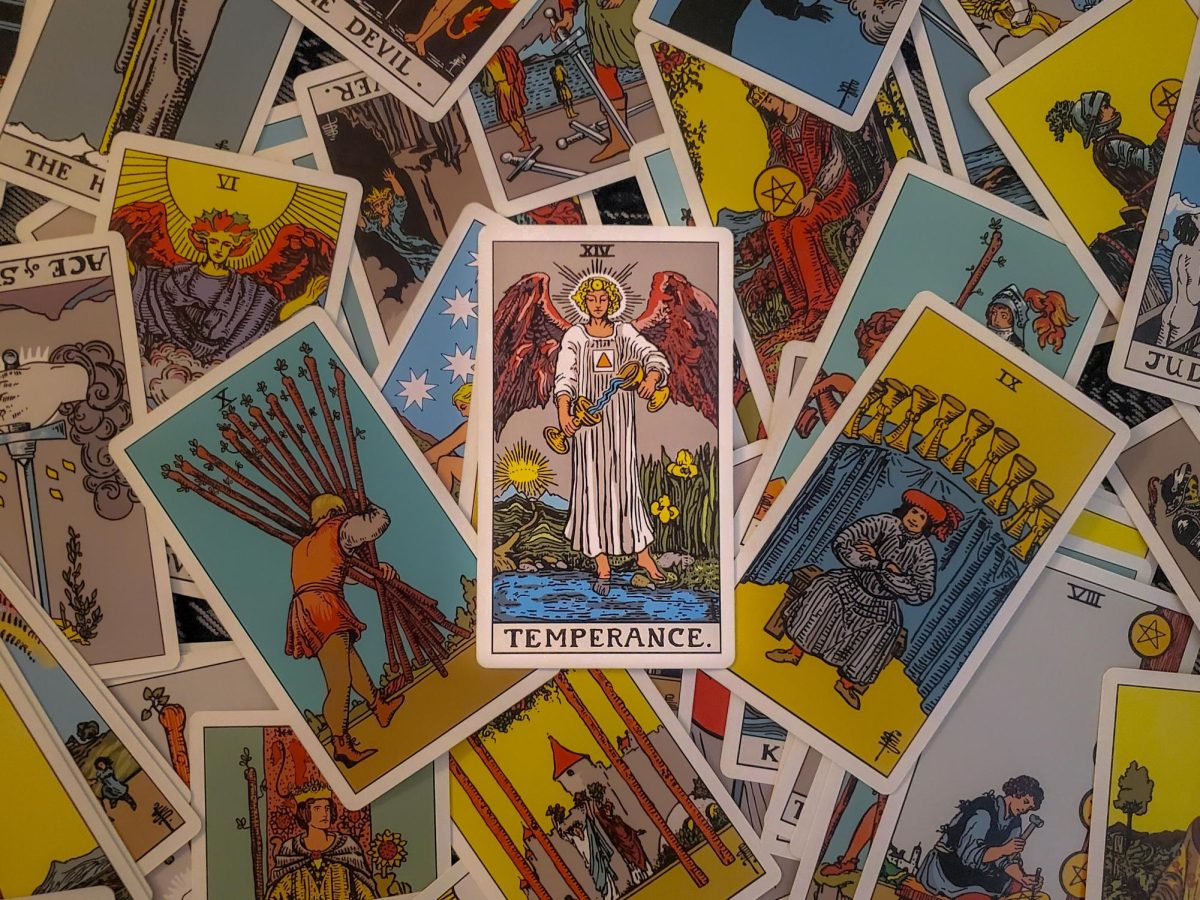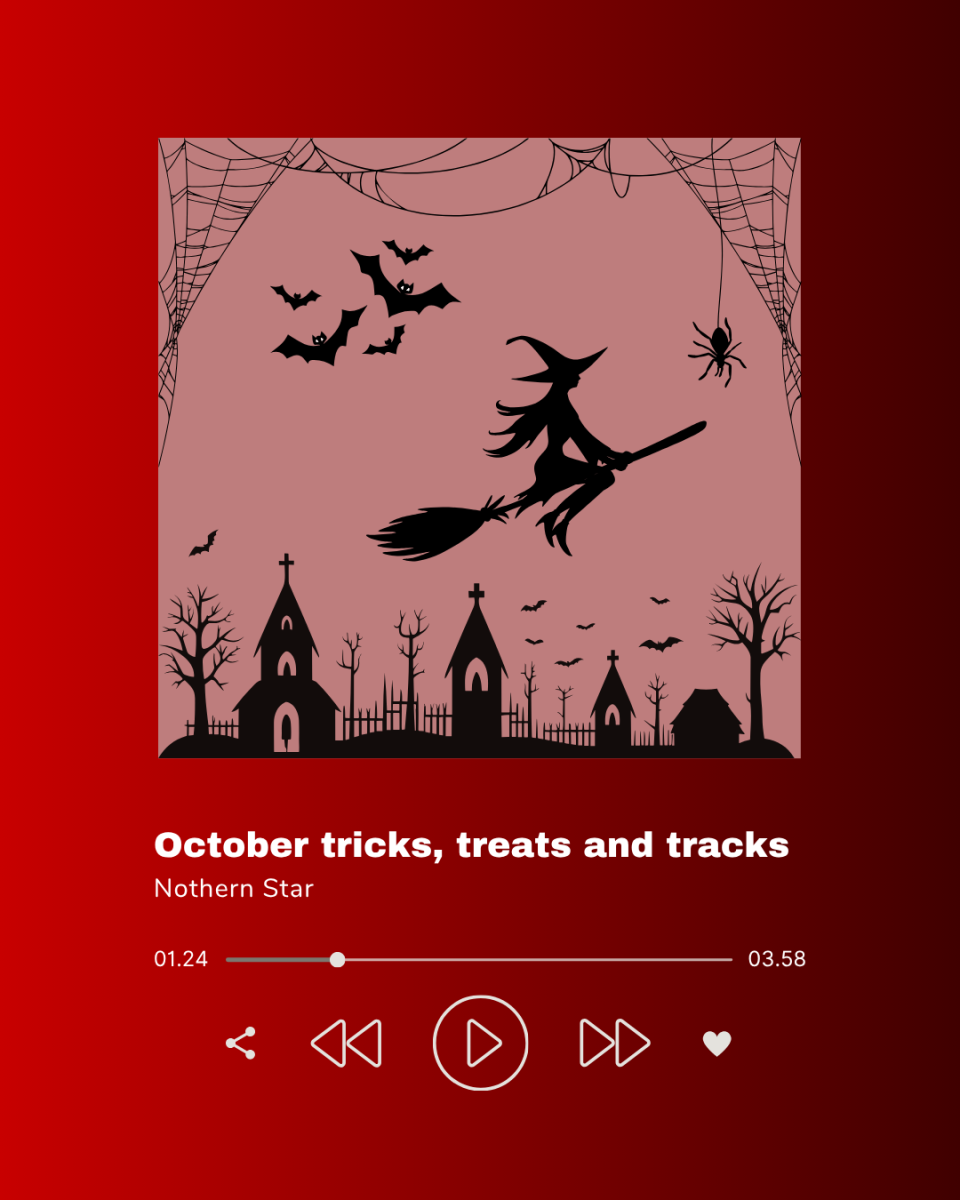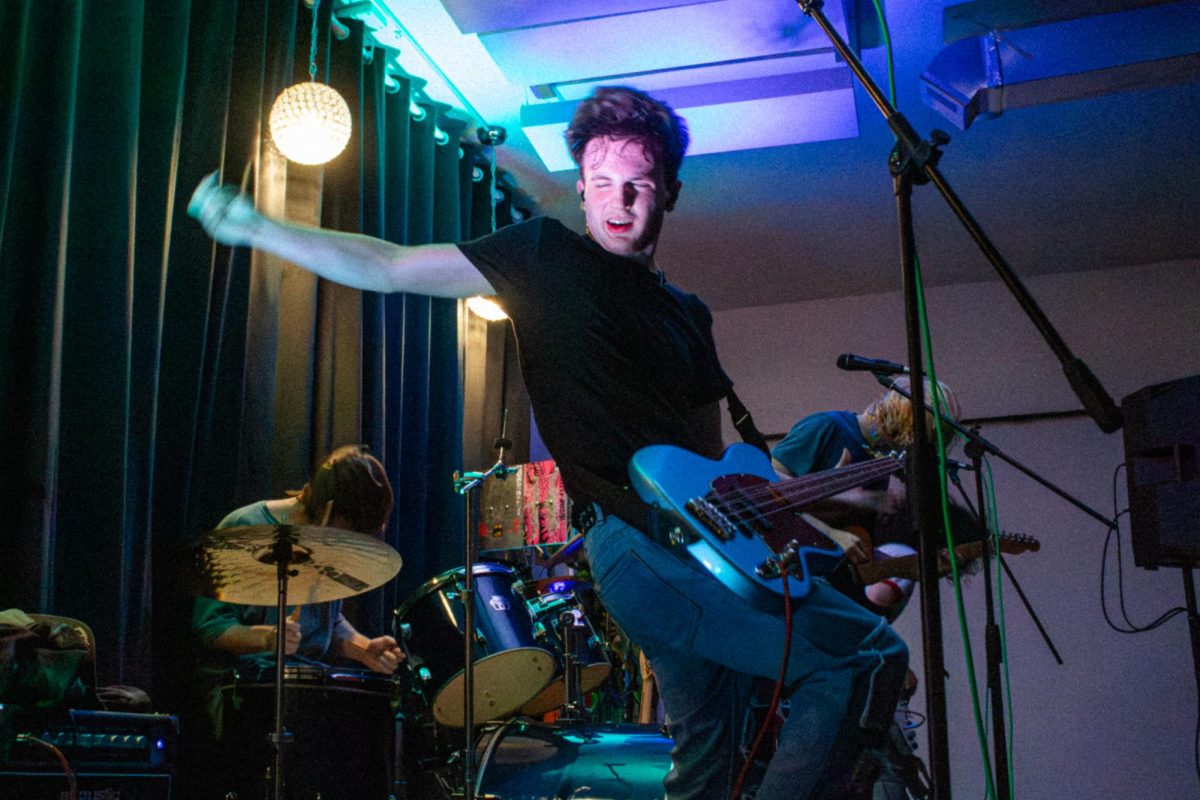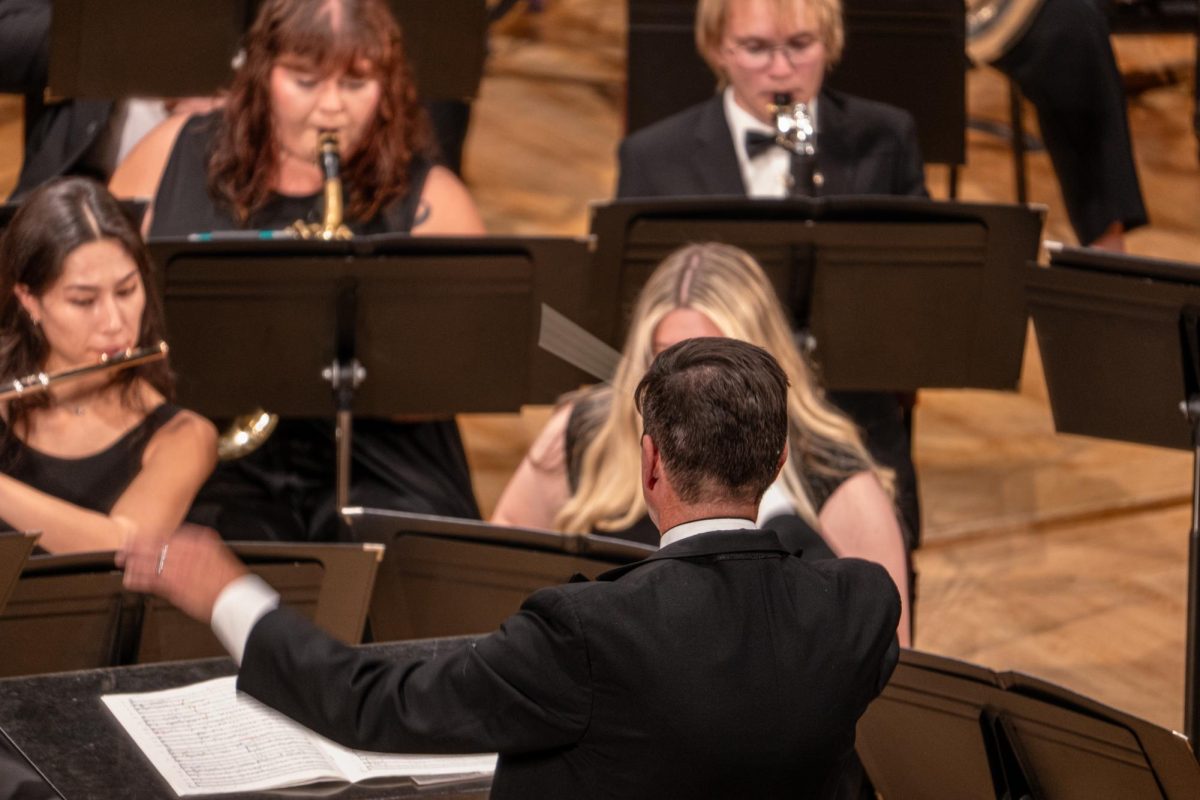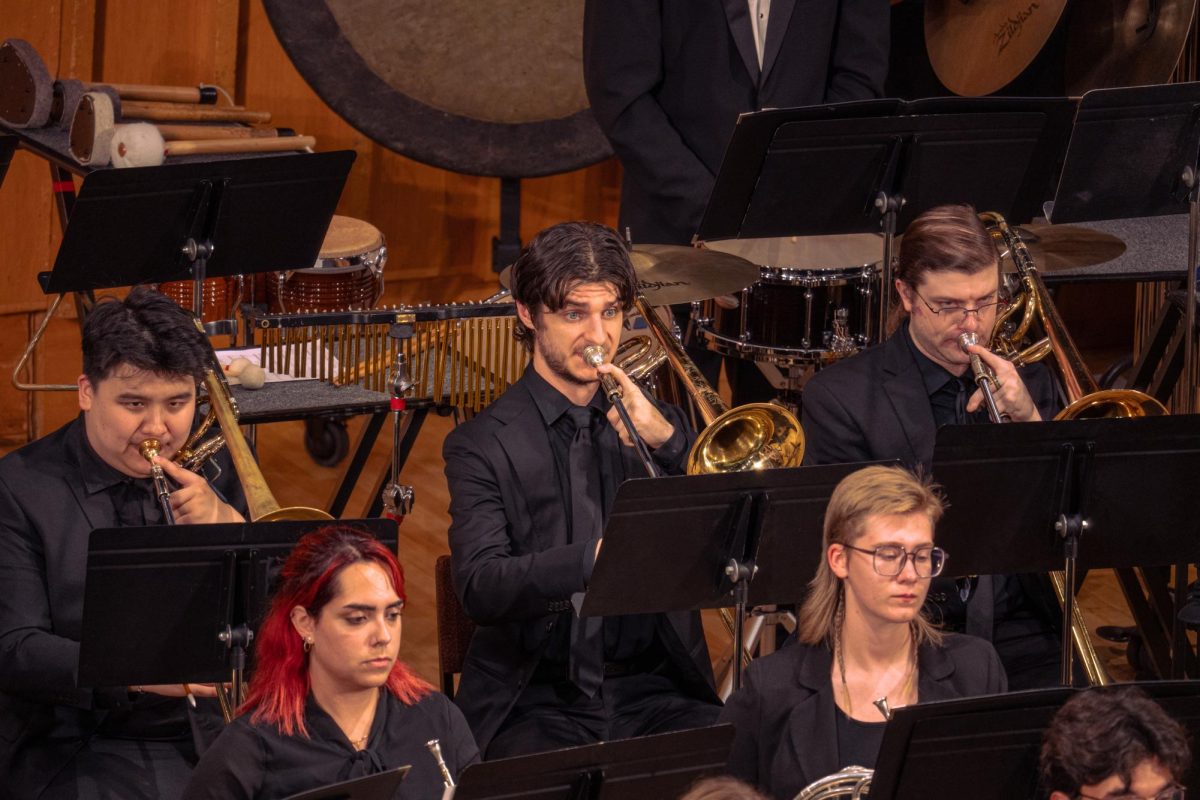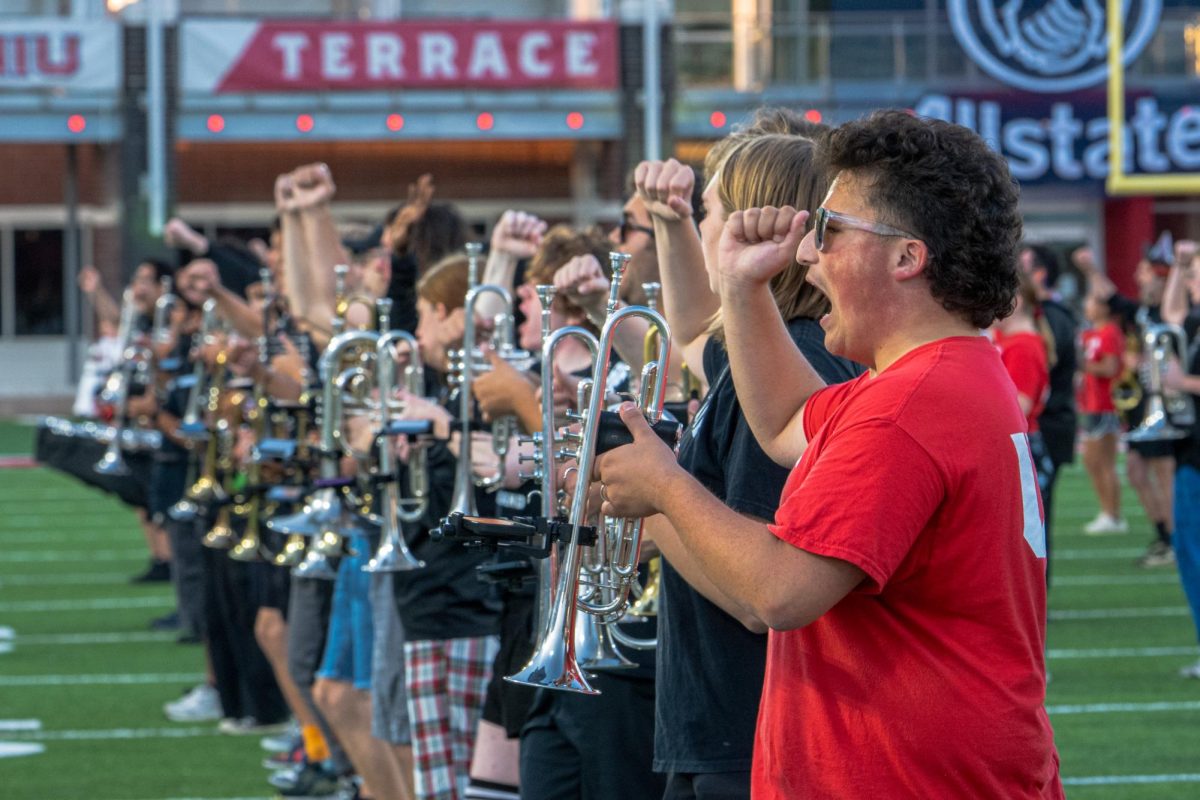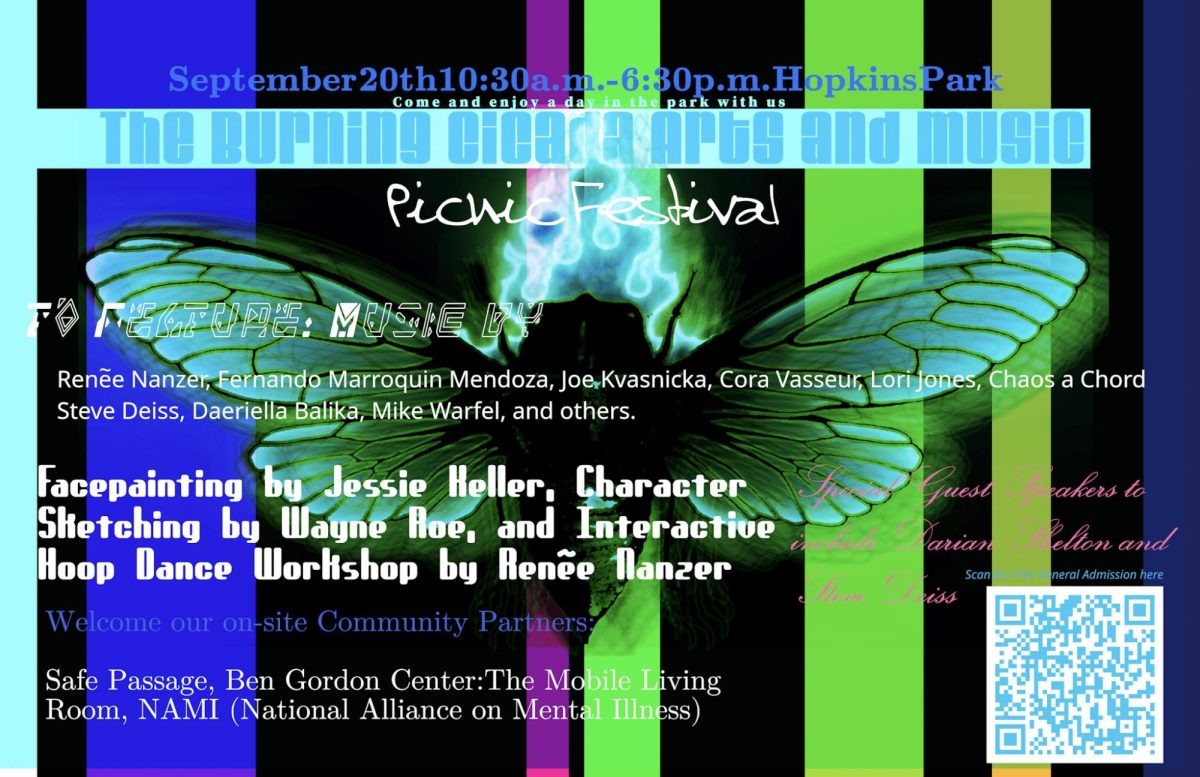Staff, students and community members gathered as piercing notes filled the air from a khene, a traditional Thai instrument, played by ensemble director Chamni Sripraram.
Around 20 to 30 people attended the performance at 5 p.m. Tuesday in the Recital Hall of the Music Building.
This concert is part of the School of Music’s “World Music Festival Week.” It follows the traditions set by last year’s concert and includes music and cultural experiences from Thailand, Laos and Cambodia in celebration of the Loy Krathong festival.
This festival is also celebrated as a Thai festival of lights and lanterns. In celebration, many give thanks to the water goddess Khongkha for an abundant harvest by putting floating lights down the river and having them float away. This can be seen as having dark thoughts and grudges swept away and bringing good luck.
In honor of these rich cultural traditions, prior to the show, students from the Thai language program and members of the World Languages department treated guests to cultural displays to learn the traditions, Thai art and crafts which involved making a paper flower lantern, and a photo booth where you could take pictures with traditional Thai clothes and items.
After the festivities, the audience was treated to the rich selection of cultural dance and music, including guest performers and participation from students in the Thai language program.
According to John Hartmann, an emeritus professor who works with the Center for Southeast Asia Studies and Thai language department, the purpose of the music and traditional instruments is to keep in harmony with nature.
“It’s important for us to appreciate the sort of environmental nature, from the bamboo origin of this [the khene] instrument’s intent is not only to preserve the instrument but also the environment, the place where it grows,” said Hartmann.
This awareness is important to consider, Hartmann iterated. He also shared its cultural significance and how young men often would play the instruments while tending to the buffalo, so by playing these instruments you are essentially perpetuating these practices.
During the performance and in between sets, the audience was able to learn more about the different instruments and was very engaged. At one point, Hartmann encouraged the audience to whistle in the spirit of learning about Thai music.
“OK, now that we’ve got a bunch of whistlers here, you know what’s involved, you can sign up for the Thai Music Ensemble next year,” Hartmann said.
The music and atmosphere were lively and enthusiastic throughout the show. During “Serng Ponglang,” a traditional Thai folk dance, the members of the World Language department and the audience were invited to participate and join in the dance.
The dance is traditionally known for bringing people together and celebrating the community.
“To make a circle, we call this traditional dance the social [dance]. If you relax a bit and you enjoy the music, close your eyes to feel like, get the music in your heart,” Sripraram said.
The ensemble’s next performance will be in April for the Songkran Festival, the exact date to be announced.


